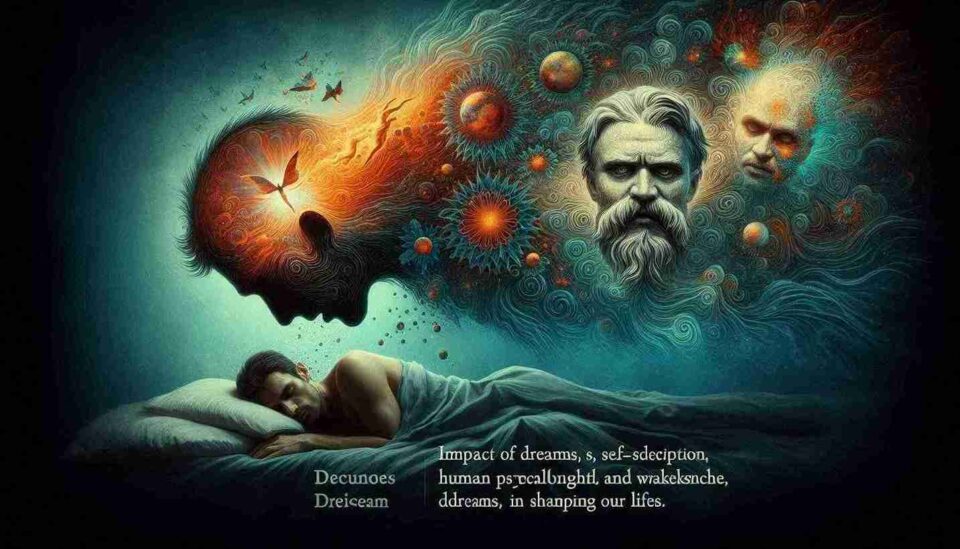Introduction: Dreams Shaping our Mind
We often find ourselves entangled in a profound illusion – the illusion of hope, the allure of the future, and the promise of tomorrow. As human beings, we are inherently bound to self-deceptions. Nietzsche once remarked that humans dreams cannot truly exist without embracing falsehoods; we require dreams, illusions, and even lies to navigate life. In this exploration, we delve into the profound concept of human psychology, shedding light on why these illusions are essent.

1) The Complex Mind:
Unraveling the Depths of the Human Mind
Our first step toward understanding the significance of dreams and self-deception begins with a deep exploration of the human mind. It’s a mind that craves falsehoods, that cannot coexist harmoniously with reality, and that continually hungers for dreams. These illusions don’t merely emerge at night; they persist even when we’re awake. As you engage with the world, your mind weaves a constant stream of images, and fantasies.
2) The Vital Role of Dreams: The Underestimated Necessity
Recent scientific research has unveiled a fascinating truth – while humans can survive without sleep, they cannot thrive without dreams. Contrary to the conventional belief that sleep is solely about rest, modern studies emphasize that its primary function is to enable dreaming. That are the vital element that rejuvenates your psyche. If you are deprived of the opportunity to dream while sleeping, you’ll wake up feeling fatigued and far from refreshed.
3) The Understanding the Cycles of Sleep and Dreaming
The night unveils a symphony of alternating states – deep sleep and dreaming. Just as day and night follow a rhythm, so does the sleep cycle. At the onset of sleep, you plunge into a deep slumber that lasts for approximately forty to forty-five minutes. Then, the dream phase unfolds, and you embark on a unique journey within your mind. This cycle repeats throughout the night. If your sleep is disrupted during deep slumber, you’ll likely wake up without a sense of loss. However, disturbing your dreams can leave you feeling utterly exhausted in the morning.

4) Dreams in Wakefulness:
The Continuity of Dreaming in the Waking World
The influence of dreams isn’t confined to the night; it permeates our waking hours as well. During the day, you might notice moments when your mind drifts into a dreamlike state. At times, dreams linger in your consciousness, while on other occasions, your thoughts remain devoid of dreams. When dreams dominate your mind, you may find yourself physically present but mentally absent. For instance, as you sit here, a dream state can eclipse your focus, causing you to hear without truly listening.
Conclusion:
In summary, the intricate relationship between dreams, self-deception, and the human psyche is a captivating exploration. Whether in the depths of night or the light of day, our minds continuously weave dreams and embrace illusions. As Nietzsche astutely observed, our existence is intertwined with these self-deceptions, making them an indispensable aspect of our journey through life. Understanding this dynamic is not only fascinating but also crucial for those embarking on the path of self-discovery through practices like yoga.

